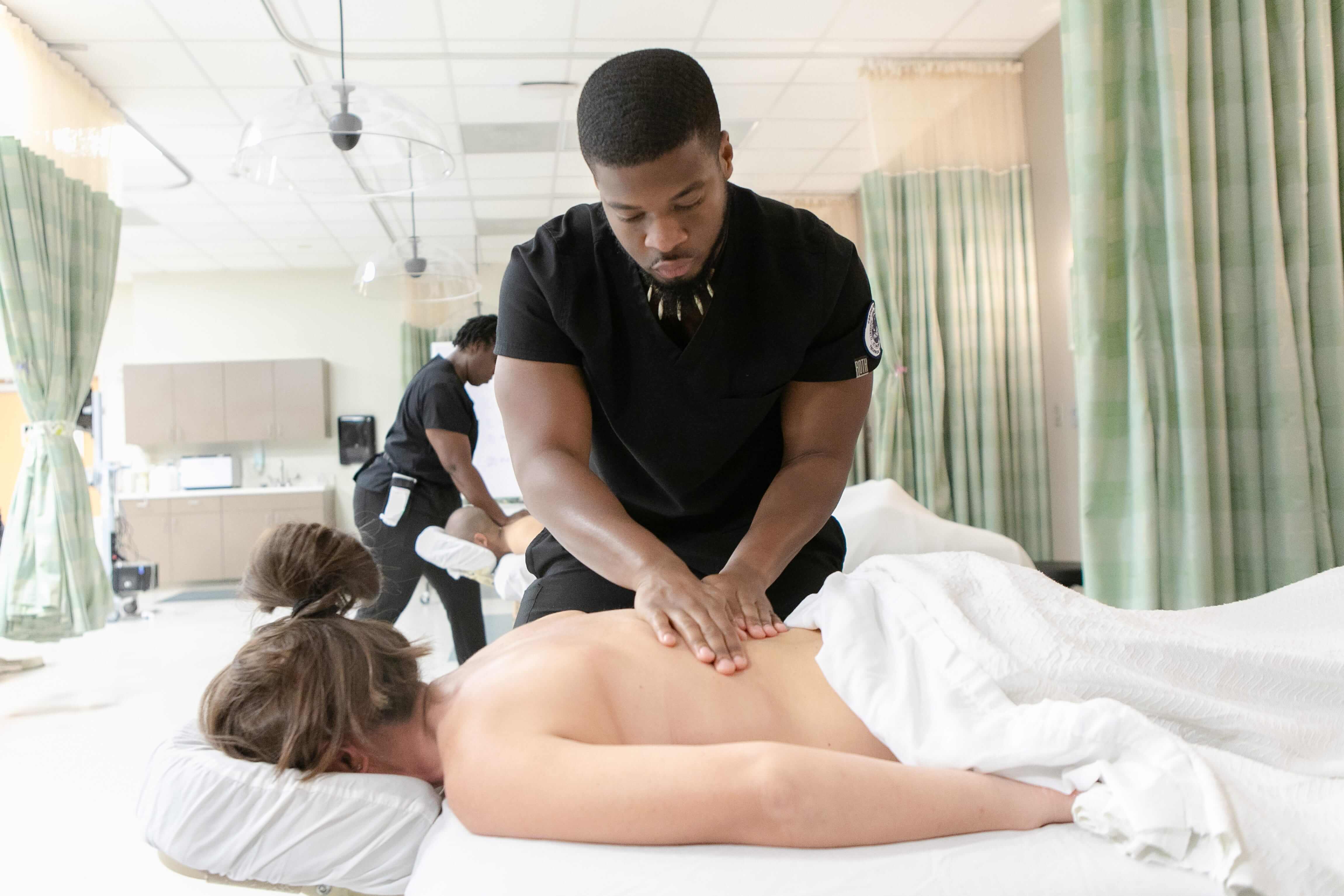
The Massage Therapy Program is an entry-level training program for students interested in becoming a massage therapist or for health care providers wishing to expand their range of clinical skills and knowledge. The Massage Therapy program prepares graduates to work in direct client care settings to provide manipulation (massage) of the soft tissue structures of the body to prevent and alleviate pain, discomfort, muscle spasm, and stress, and to promote health and wellness.
Employment opportunities may be found in health care facilities, rehabilitation centers, medical offices, nursing homes, spas, health and sports clubs, hotels/resorts, cruise ships, and private practice.
Upon successful completion of the Massage Therapy Certificate, students are eligible to apply to take the Federation of States Examination (MBLEx) before applying for a South Carolina license. Note: South Carolina licensure eligibility may be denied to applicants with criminal convictions. Graduates are eligible to apply to take the NCBTMB Specialty Certificate for Integrative Healthcare.
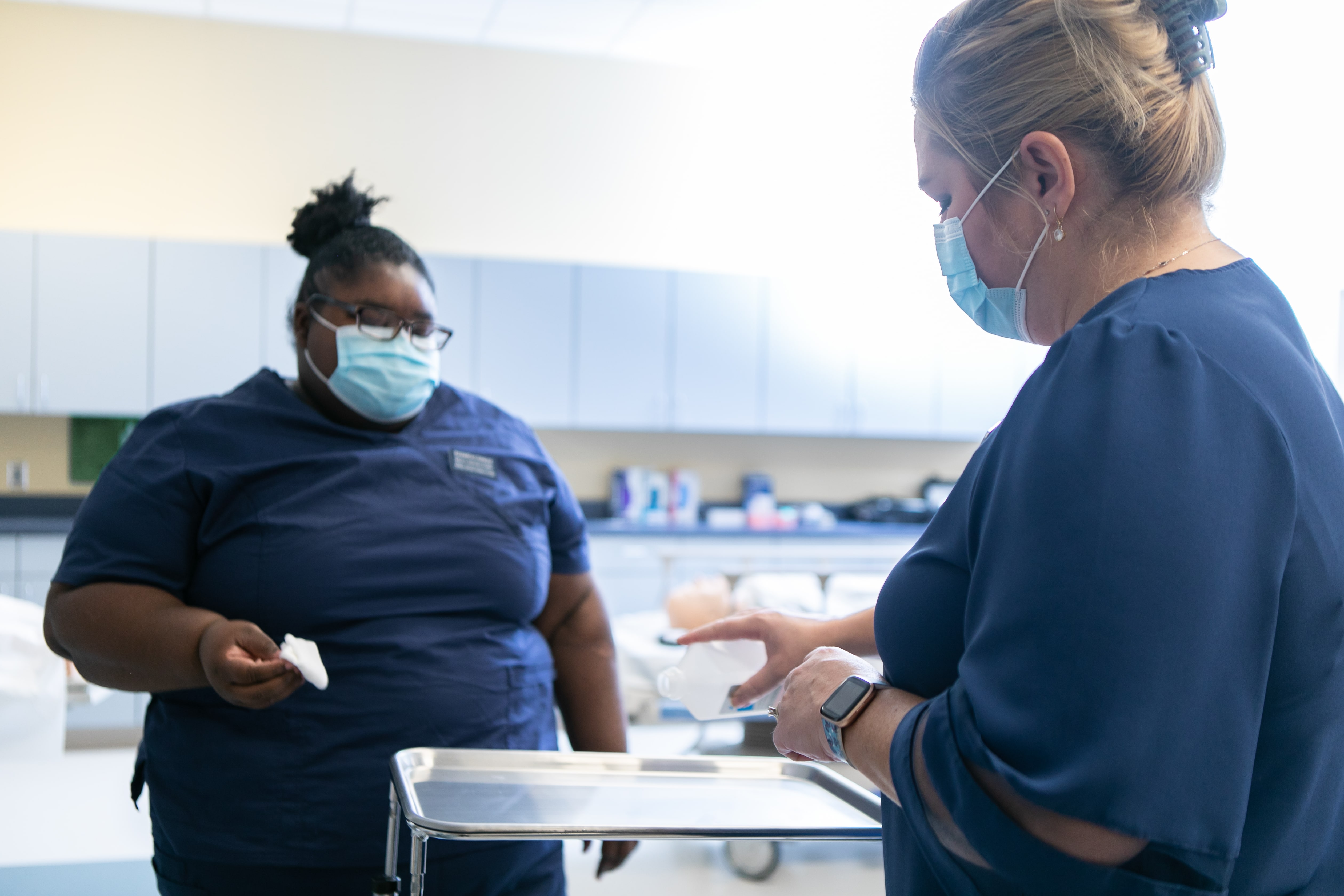
The Medical Assisting Diploma in Applied Science program prepares graduates to assist other health care professionals in offices and/or other medical settings and perform delegated administrative and clinical duties in accordance with respective federal and state laws governing such actions, activities, and ethical standards. The mission of Central Carolina Technical College’s Medical Assisting Program is to prepare medical assistants who are competent in the cognitive (knowledge), psychomotor (skills), and affective (behavior) learning domains to enter the profession.
Upon successful completion of the Medical Assisting program, the graduate is eligible to take the Certification exam as a RMA (Registered Medical Assistant-American Medical Technologists) and/or as a CMA (AAMA), (Certified Medical Assistant- American Association of Medical Assistants). Note: Certification examination eligibility may be denied to applicants with criminal convictions.
The Central Carolina Technical College Medical Assisting Diploma program is accredited by the Commission on Accreditation of Allied Health Education Programs (www.caahep.org) upon the recommendation of the Medical Assisting Education Review Board (MAERB), Commission on Accreditation of Allied Health Education Programs, 9355 – 113th St. N, #7709, Seminole, FL 33775
The Central Carolina Technical College Medical Assisting Diploma program has had the following outcomes:
The Central Carolina Technical College Medical Assisting Diploma program employs the following core indicators as measures of the effectiveness of the program:
At the completion of the Medical Assisting program, graduates will be able to:

The Medical Record Coding Certificate program is designed to prepare health information professionals who focus on medical record management with an emphasis on procedural and diagnostic coding for reimbursement of professional services performed in healthcare facilities. The program includes medical terminology, human disease process, pharmacology, medical billing, procedural and diagnostic coding and medical records regulations. Upon successful completion of the Medical Record Coding Certificate program, the student may be eligible to take the certification examinations administered by the American Health Information Management Association (AHIMA) and/or the American Academy of Professional Coders (AAPC).
Medical Record Coding is a completely ONLINE certificate program.

The Inpatient Medical Coding Certificate program is designed to prepare Health Information Professionals by focusing on procedural and diagnostic coding for reimbursement of professional services performed in inpatient facility settings. The program includes medical terminology, anatomy and physiology, inpatient procedural coding (ICD-10-PCS) and diagnostic coding (ICD-10-CM) as well as medical regulations. Upon successful completion of the Inpatient Medical Coding Certificate program, the student is eligible to take the certification examinations administered by the American Health Information Management Association (AHIMA) or the American Academy of Professional Coders (AAPC). In order to complete the AMCO program students who have successfully completed the MRCO program need only take HIM 225 and HIM 250. The AMCO program is presented 100% online and is supported with a wide variety of methods and opportunities for direct contact with the program manager and instructors.
Inpatient Medical Coding is a completely ONLINE certificate program.
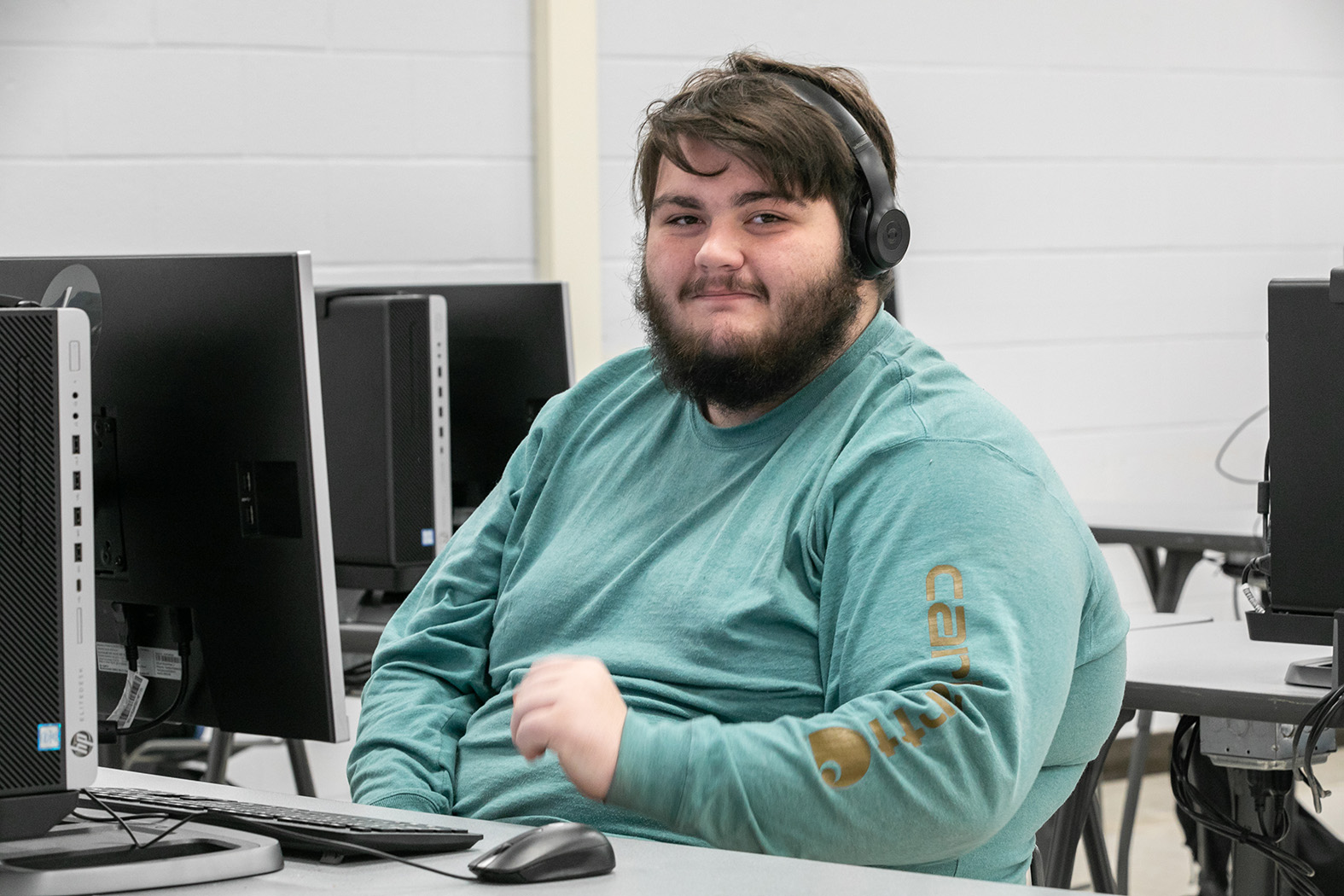
The Computer Technology Associate Degree in Applied Science program provides students with the opportunity to learn the necessary skills to use state-of-the-art computer systems to solve business and information systems related problems. The program focuses on developing problem-solving and decision-making skills employing microcomputers and associated technology. The curriculum includes three certificate programs consisting of courses in programming, cybersecurity; students may also pursue a concentration in networking or as an alternative to the certificate, a concentration in cybersecurity. These advanced courses allow students to choose a specific career path in the information systems field.
The utilization of popular microcomputer word processing, database, spreadsheet, and specialized software packages is required for successful completion of the microcomputer courses. Programming courses in Smart BASIC, Python, Node. JS, Java, and JavaScript are also included in the curriculum. To complement the language development courses, students must successfully complete studies in operating systems, Internet communications, database design and management, and computer systems hardware and software maintenance. Upper-level courses in the curriculum include both the theory and hands-on application of data communications technology, local area networks (LANs), programming, web development, and systems analysis and design procedures. Authorized certification course materials (MOS, ITF+, A+, Network+, Security+, MCSE, MTA, and CCNA) are used in a variety of the courses. Students are encouraged to obtain appropriate professional certifications.
Career opportunities include computer operator, hardware/software technician, application programmer, programmer/analyst, network manager, network administrator, applications specialist, web specialist, end-user support technician, information security analyst or help-desk specialist.
The Computer Technology Associate Degree Program requires at least a grade of “C” in all of the courses offered within the CMPT curriculum for the grade to be counted toward graduation. Specifically, these include courses with the following prefixes: CPT and IST.
Certificate Programs and Concentration(s)
Prior to the beginning of the fall semester of their second year of study, students in consultation with their academic advisor, should choose a certificate program or concentration as an area of specialization.
This program is aligned with the following career cluster: Information Technology

The Natural Resources Management Associate Degree in Applied Science program is designed to prepare students for a career in the management and protection of natural resources. Success in this field requires the technician to have a broad background in the biological and agricultural sciences as well as manual skills. This is achieved through a balance between classroom time, distance learning, and outdoor learning activities. Successful graduates will know the proper use, development, conservation, and management of wildlife, wetlands, and woodlands and the ecosystems that support them.
Students can take the entire program online, but those looking for hands-on experiential learning can take the Technicians Skills courses. This series of classes require hands-on labs held at select locations throughout the semester. The student discuss these options with their academic advisor at the beginning of the program of study.
Career opportunities exist with landowners; local, state, and federal agencies; and private industry engaged in the development and wise stewardship of natural resources. Students in this program. have flexible education options for transfer to four-year degree programs and entry directly into the field as technicians.
This program is an online program.
*Students interested in the online program format may substitute the NRM Technician Skills I, II, III courses with an online Departmental Elective.
**PHI 110 Ethics recommended as the Humanities/Fine Arts elective.
***Students who are interested in law enforcement careers in the NRM field are encouraged to take CRJ 101 as their Social/Behavioral Science Elective.
This program is aligned with the following career cluster: Agriculture and Food & Natural Resources.
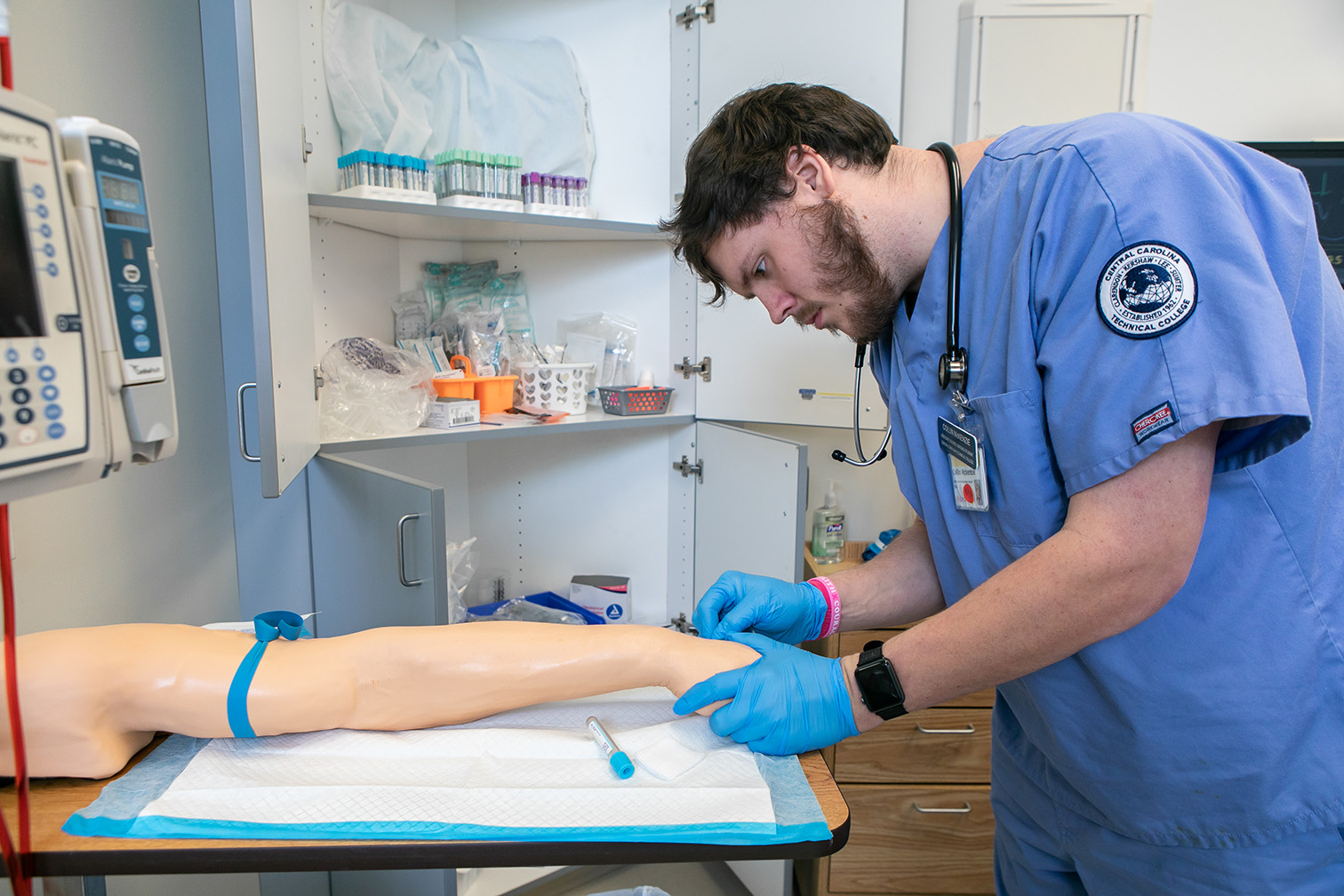
The Associate Degree Nursing (ADN) program prepares graduates to function as competent registered nurses who are caring and sensitive to diversity and use critical thinking and technology to provide care in structured settings for patients and their families/significant others. Throughout the program, the student has planned clinical experiences to complement classroom learning and to enhance skills in the application of nursing principles and associated technology. The scheduling of clinical experiences varies throughout the nursing program.
The Associate Degree Nursing program at Central Carolina Technical College at the Health Sciences Center located in Sumter, South Carolina is accredited by the: Accreditation Commission for Education in Nursing (ACEN) 3390 Peachtree Road NE, Suite 1400 Atlanta, GA 30326, Phone (404) 975-5000, www.acenursing.org. The most recent accreditation decision made by the ACEN Board of Commissioners for the Associate Degree Nursing program is Continuing Accreditation.
The Associate Degree Nursing Program is approved by the South Carolina Labor, Licensing, and Regulation Board of nursing, 110 Centerview Drive, Columbia, SC 29210, Phone (803) 896-4300, https://llr.sc.gov/nurse/.
Requirements for the program are subject to change without notice in order to meet requirements of the South Carolina LLR Board of Nursing, the South Carolina Technical College System, and ACEN.
Successful completion of the ADN program does not guarantee licensure to practice as a registered nurse.
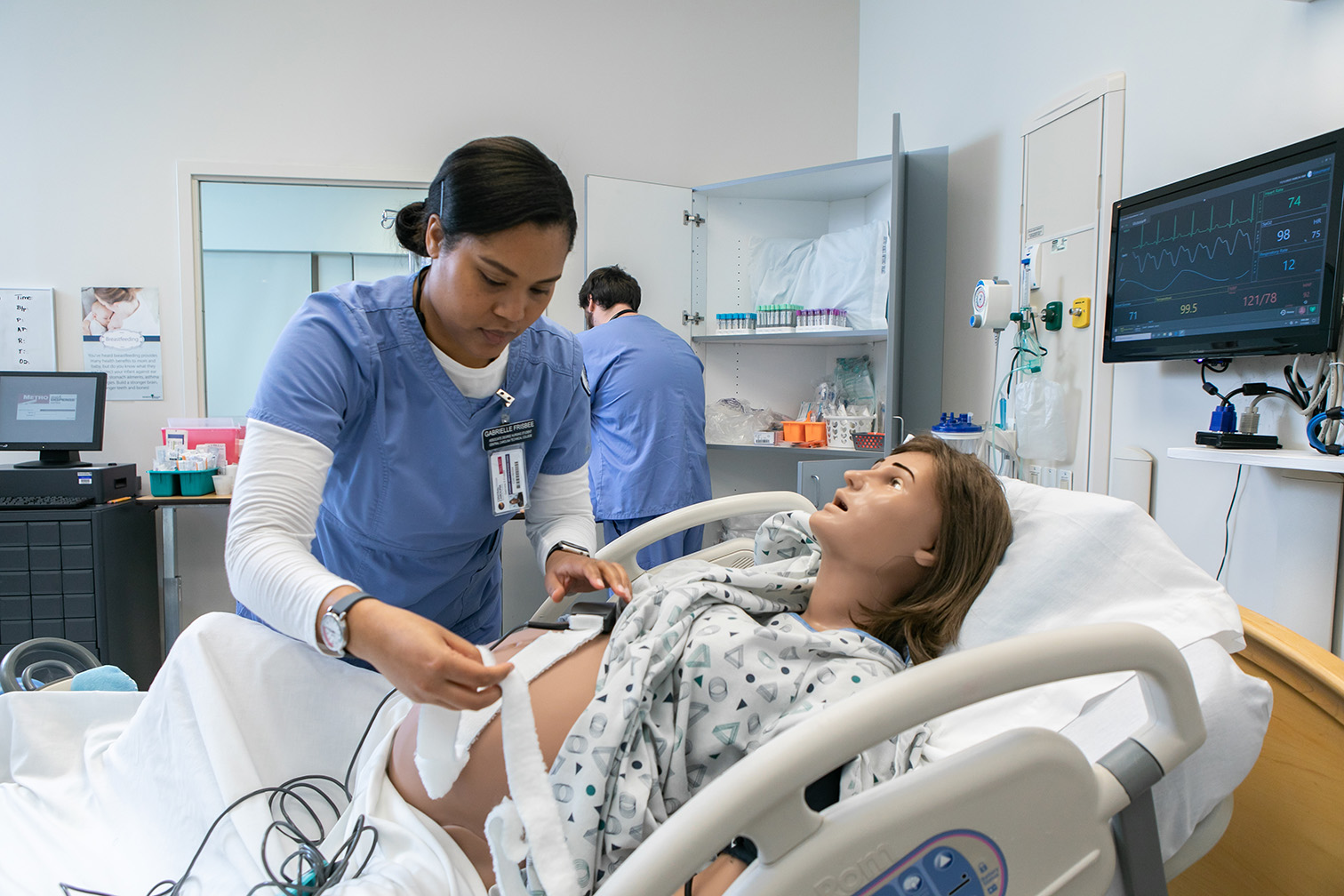
The Transition Nursing Option provides qualified licensed practical nurses (LPN) and qualified paramedics the opportunity for advanced placement into the Associate Degree Nursing (ADN) program. The ADN program prepares graduates to function as competent nurses who are caring and sensitive to diversity, use critical thinking and technology to provide care in structured settings for patients and their families/significant others. Throughout the program, the student has planned clinical experiences to complement classroom learning and to enhance skills in the application of nursing principles and associated technology. The scheduling of clinical experiences varies throughout the nursing program.
The Associate Degree Nursing program is accredited by the Accreditation Commission for Education in Nursing (ACEN), 3390 Peachtree Road NE, Suite 1400, Atlanta, Georgia 30326, (404)975-5000 www.acenursing.org. The most recent accreditation decision made by the ACEN Board of Commissioners for the Associate Degree Nursing program is Continuing Accreditation.
The ADN program prepares graduates to apply to take the National Council Licensing Examination for Registered Nurses (NCLEX-RN) and is approved by the South Carolina Department of Labor, Licensing, and Regulation (LLR) Board of Nursing, 110 Centerview Drive, Columbia, SC 29210, (803)896-4300, https://llr.sc.gov/nurse.
Requirements for the program are subject to change without notice in order to meet requirements of the South Carolina LLR Board of Nursing, the South Carolina Technical College System, and ACEN.
Successful completion of the ADN program does not guarantee licensure to practice as a registered nurse.
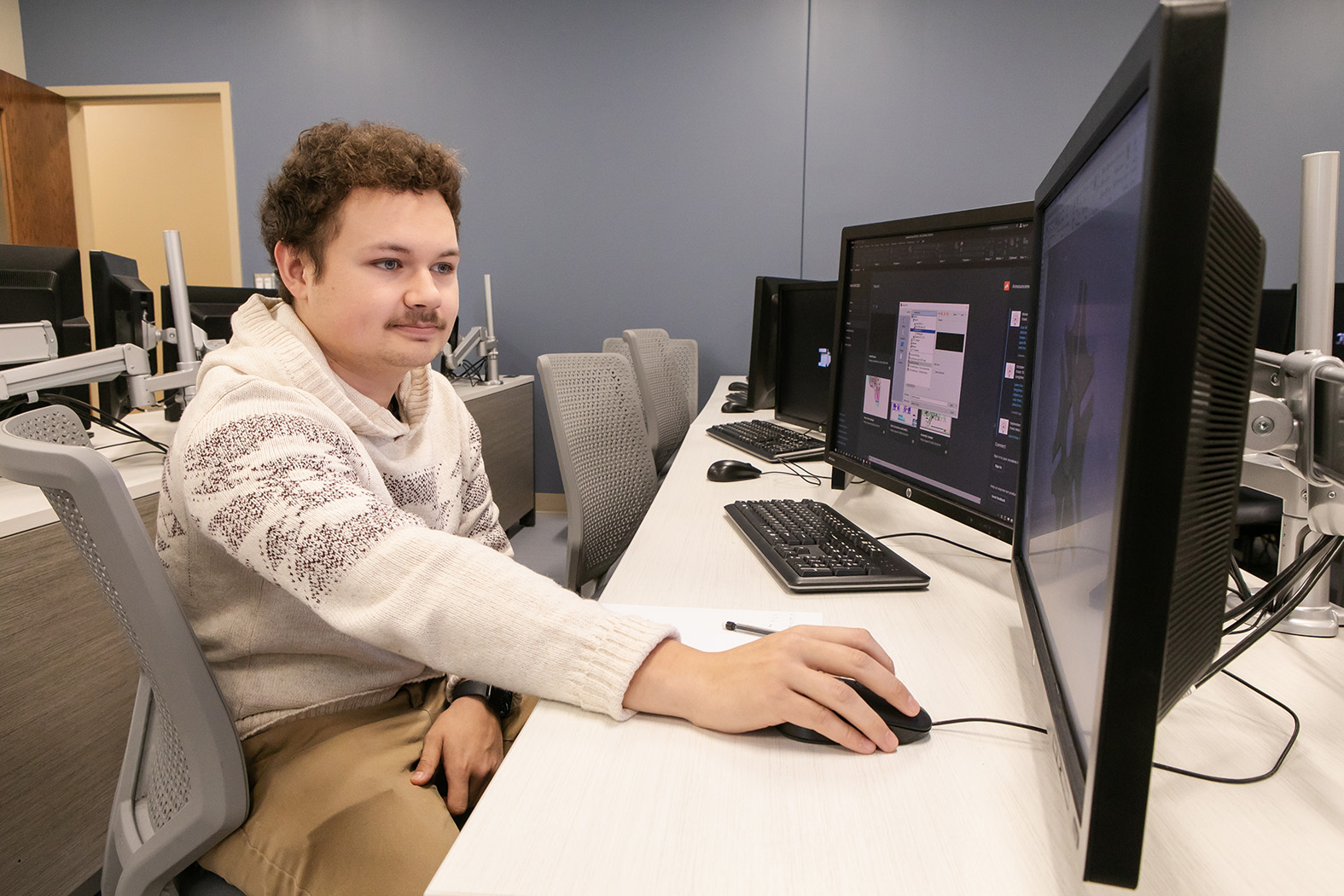
The General Technology Associate Degree program is intended for students who find it necessary to design a program to meet specific individual needs. It is to be used sparingly and should not be used in lieu of an approved major. To enroll in the General Technology program, the student must meet with an assigned academic advisor to determine a curriculum plan. Acceptance into the program must be approved by the appropriate department chair.
Central Carolina Technical College will award exemption credit for Certification Training from the National Fire Academy or the South Carolina Fire Academy. Up to 24 hours of exemption credit will awarded based on the criteria set forth by the South Carolina Technical College System. Exemption credit will be applied toward the Associate in Applied Science Major in General Technology after the first semester of successful college course work and used to satisfy the Secondary Technical Specialty and Additional Technical Course requirements. The other coursework necessary to complete the associate degree will be determined by the academic advisor in consultation with the student and defined in an individual Student Program Plan.
Central Carolina Technical College will award exemption credit for Certification Training from the Northwest Lineman College. Up to 24 hours of exemption credit will be awarded based on the criteria set forth by the South Carolina Technical College System. Exemption credit will be applied toward the Associate in Applied Science Major in General Technology after the first semester of successful college course work and used to satisfy the Secondary Technical Specialty and Additional Technical Course requirements. The other coursework necessary to complete the associate degree will be determined by the advisor in consultation with the student and defined in an individual Student Program Plan.

The Medical Billing and Reimbursement Certificate (MBRC) program will prepare competent entry-level individuals in the cognitive (knowledge), psychomotor (skills ~ articulation; computer charting abilities; mindset: response to different situations/charts; no discursive communication; body language; perception; precision; etc.), and affective (behavior) curriculum learning modules necessary for employment as a Billing professional.
Upon successful completion of the MBRC program, the student is eligible to take the Certified Professional Billing (CPB) examination and work in a medical billing department at a physician’s office, clinic, acute or long-term care facility, or as a claims examiner for insurance companies [third-party payers]. The exam is administered by the American Academy of Professional Coders (AAPC).
In order to be accepted into the MBRC program, students must have successfully completed the MRCO program. The MBRC program will be presented 100% online and is supported with a wide variety of methods and opportunities for direct contact with the program manager and instructors.
Medical Billing and Reimbursement is a completely ONLINE certificate program.